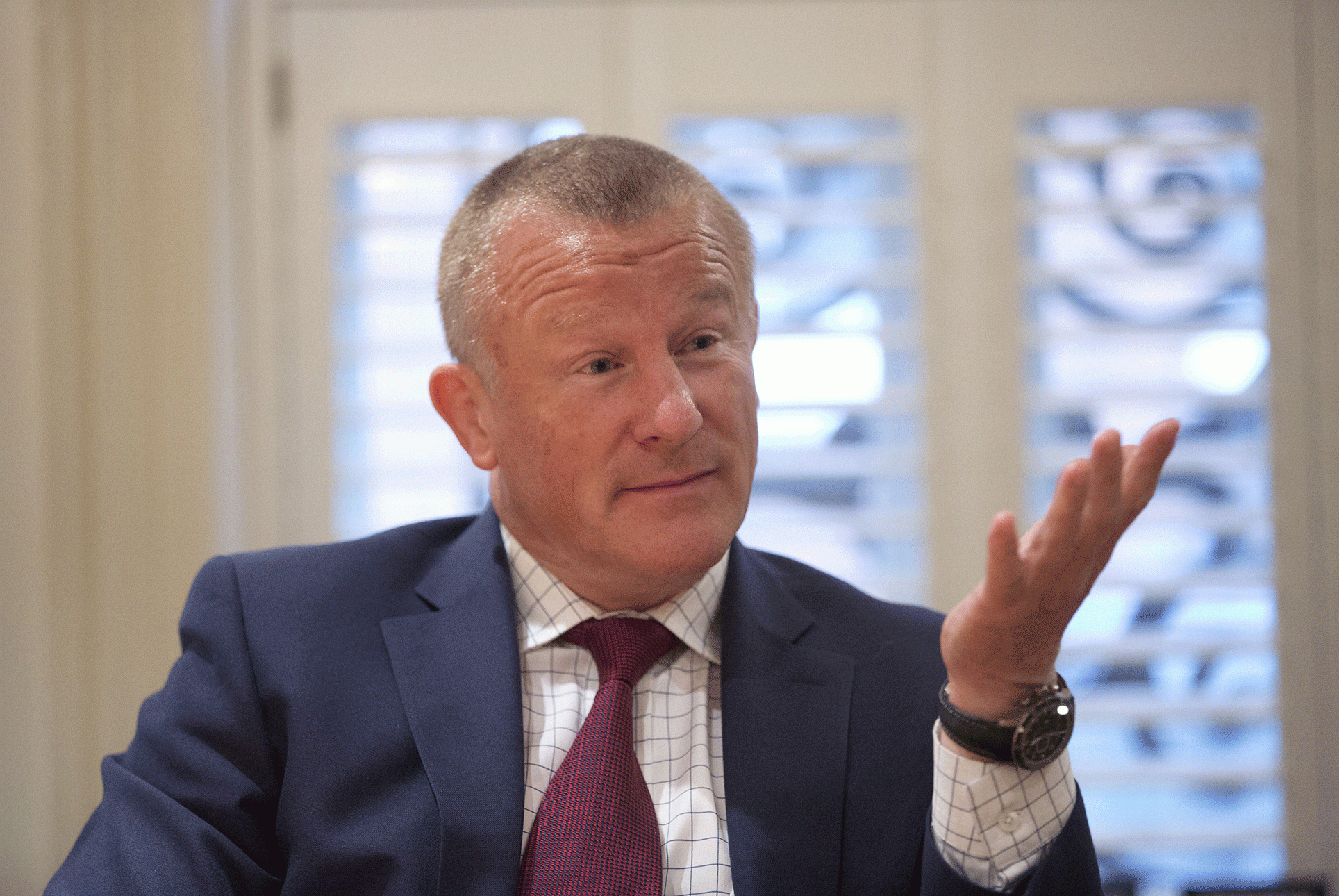Super fund manager Neil Woodford says Britain "appallingly bad" at getting cash to future tech superstars
The investment guru makes an excellent point. But what exactly should we do about it?

Your support helps us to tell the story
From reproductive rights to climate change to Big Tech, The Independent is on the ground when the story is developing. Whether it's investigating the financials of Elon Musk's pro-Trump PAC or producing our latest documentary, 'The A Word', which shines a light on the American women fighting for reproductive rights, we know how important it is to parse out the facts from the messaging.
At such a critical moment in US history, we need reporters on the ground. Your donation allows us to keep sending journalists to speak to both sides of the story.
The Independent is trusted by Americans across the entire political spectrum. And unlike many other quality news outlets, we choose not to lock Americans out of our reporting and analysis with paywalls. We believe quality journalism should be available to everyone, paid for by those who can afford it.
Your support makes all the difference.I’ve taken the odd shot at Neil Woodford, who these days gets dubbed “super fund manager”, in the past, largely when he’s strayed into the realm of politics.
On matters pertaining to investment, however, a man with his record has more than earned the right to a hearing.
His identification of what ails the British tech sector is something we ought to pay attention to, particularly in the wake of the loss of ARM Holdings, the UK’s single superstar, to Japan’s SoftBank.
The reason the UK has yet to produce anything in the class of Google, or Apple, or Facebook, is because, so Mr Woodford told the BBC, this country is “appallingly bad” at getting interesting tech minnows the money they need to grow their businesses.
He went on to lament the short time horizon of investors, which encourages firms to sell up to more quickly than they might otherwise do. Often to American outfits which go on to benefit from the maturation of their best ideas.
Mr Woodford wasn’t indulging in a whinge. In fact, he pointed out that the UK does some things rather well. The nation is a magnet for entrepreneurs and produces a surfeit of those minnows.
With four of the top ten universities, and 29 of the top 200, perhaps that shouldn’t be a surprise. Note to ministers. This is a resource you really don’t want to wreck. A lot of the funding for those universities comes from overseas students. If you insist on making it difficult for them to come over, while indulging those who make them feel unwelcome when they’re here, those universities, and ultimately the country, will pay a heavy price.
Another driver that makes the UK a good place for start ups is the measures that have been taken to encourage people to invest in them, with generous tax breaks available for those willing to take risks.
It shouldn’t be forgotten that backing starts ups is a dangerous business to be in. A lot of them fall flat on their faces. So the tax breaks are justifiable if they help to encourage people to take the plunge. But it seems a shame that the country then seems so unable to make a return on its investment in those tax breaks by not seeing more minnows getting through to the next phase of development. The problem is that once they have established themselves as successful start ups, businesses find it extremely tough to scale up their businesses, to bridge the gulf between minnow and monster.
Traditional venture capital funds, with their addiction to turning a (relatively) quick buck, seem unsuited to the task. The sort of specialist tech investors that proliferate in Silicon Valley and help to keep it at the top, are hard to find on this side of the Atlantic.
Does the state, then, have a role? Potentially. The Government has long been wary of trying to find and back winners. It isn’t very good at it. Some kind of state backed tech specialist investment bank, run at one remove from ministers then? Now you might be talking!
But how to fund the thing in these times of austerity? Here’s an idea. How about using bank fines as seed capital for a new institution? Perhaps along the lines of, I don’t know, SoftBank? Or even 3i, which used to be the state backed private venture capital outfit until it was sold off.
It’s true that mega fines have become rarer, now the worst scandals (Libor, Forex) have been dealt with. But I’d be willing to lay odds that sooner or later something will emerge form the woodwork. Probably sooner.
There would be a certain synchronicity in that money being leant to businesses given how reluctant banks seem to lend their own money.
Forgive me for indulging in satire. But something needs to be done. You don’t like my tech bank idea? How about some sort of commission to look at alternatives, then? Perhaps Mr Woodford might be prevailed upon to chair it.
Join our commenting forum
Join thought-provoking conversations, follow other Independent readers and see their replies
Comments